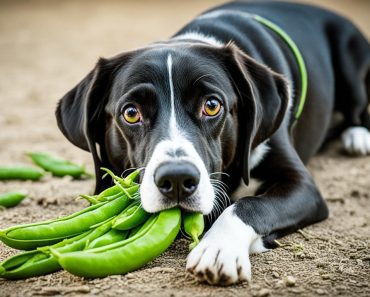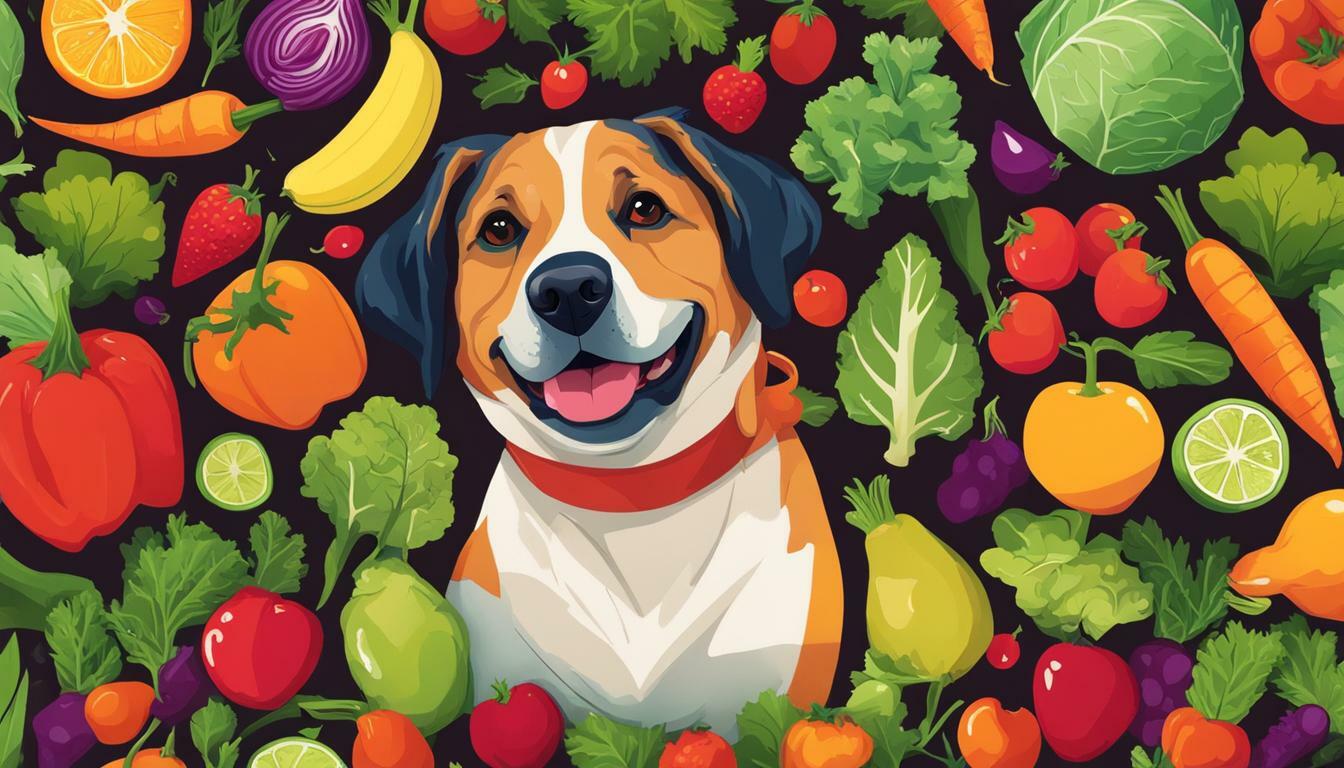
As a pet owner, you may be wondering if it’s safe for dogs to eat cabbage and how it can contribute to their overall nutrition. Well, the good news is that cabbage can be a healthy addition to your furry friend’s diet when served in moderation. Not only is cabbage low in calories, but it also offers a range of health benefits that can support your dog’s well-being.
Key Takeaways:
- Cabbage is safe for dogs in moderation and can provide several health benefits.
- It is low-calorie, high in fiber, and rich in vitamins C and K, magnesium, and beta-carotene.
- Cabbage can support digestion, promote eye health, boost the immune system, and provide antioxidants.
- Feed cabbage to dogs cooked and without added butter or spices, as raw cabbage can be difficult to digest.
- Portion sizes should be based on the dog’s size and tolerance to avoid gastrointestinal discomfort.
The Health Benefits of Cabbage for Dogs
Including cabbage in your dog’s diet can provide them with several health benefits thanks to its nutritional composition. Cabbage is low in calories, high in fiber, and packed with essential vitamins and minerals that can support your dog’s overall well-being.
Cabbage is a great source of vitamin C, which is important for a strong immune system and can help protect against illness and disease. Additionally, it contains vitamin K, which promotes healthy blood clotting and supports bone health. The high fiber content in cabbage can aid digestion and help regulate bowel movements, promoting a healthy digestive system for your furry friend.
Furthermore, cabbage is rich in antioxidants, such as beta-carotene, that can help protect cells from damage caused by free radicals and reduce the risk of chronic diseases. These antioxidants also support eye health, promoting good vision and reducing the risk of age-related eye conditions.
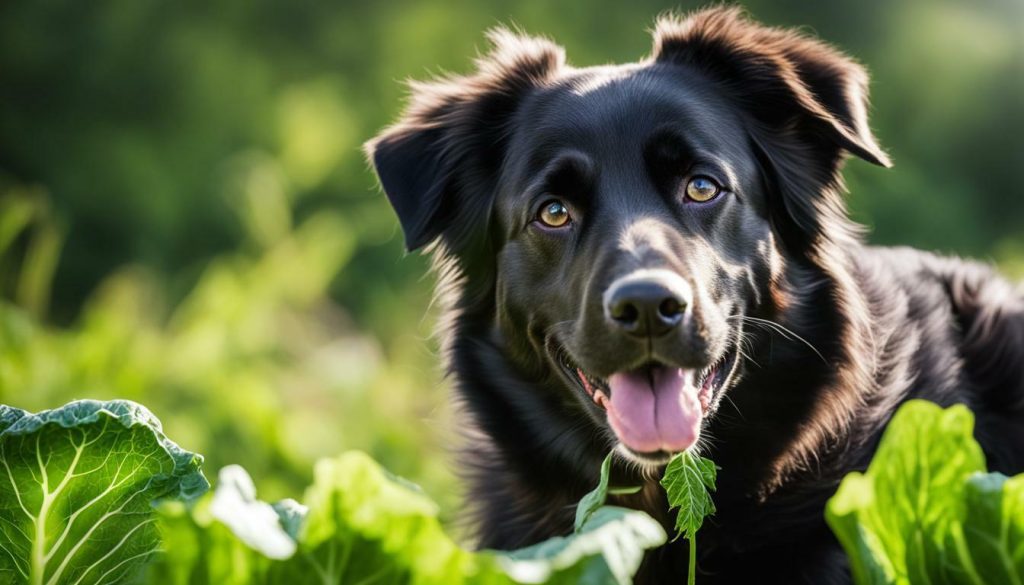
| Health Benefits of Cabbage for Dogs |
|---|
| Low in calories, making it a healthy option for weight management. |
| High in fiber, promoting digestive health and regular bowel movements. |
| Rich in vitamins C and K, supporting the immune system and bone health. |
| Contains antioxidants that protect against cell damage and promote eye health. |
However, it’s important to feed cabbage to your dog in moderation and take certain precautions. Feeding large amounts of cabbage can lead to gas and gastrointestinal discomfort, especially in dogs prone to bloat. It can also impact thyroid function if consumed in excessive amounts. To prevent choking hazards, be sure to cut the cabbage into small, manageable pieces before serving it to your dog.
While both red and green cabbage are safe for dogs to consume, it’s best to cook the cabbage before offering it to your pet. Raw cabbage can be difficult for dogs to digest, and cooking it can help make it easier on their digestive system. Avoid seasoning the cabbage with butter, spices, or other additives that may be harmful to your dog’s health.
Remember, adding cabbage to your dog’s diet should be done in conjunction with a balanced and nutritionally complete meal plan. Vegetables can supplement your dog’s diet, but they should not be the sole source of nutrition. Consult with your veterinarian to determine the appropriate portion sizes and frequency of including cabbage or any other vegetables in your dog’s meals.
Moderation and Risks of Feeding Cabbage to Dogs
While cabbage can be a nutritious addition to your dog’s diet, it’s crucial to feed it in moderation and be aware of potential risks. Cabbage is low in calories and high in fiber, making it a healthy choice for dogs. It is also rich in vitamins C and K, magnesium, and beta-carotene, which can support digestion, promote eye health, boost the immune system, and provide antioxidants.
Cabbage is safe for dogs to eat, but it should be fed in moderation as it can cause gas, especially in dogs prone to bloat,” warns veterinarian Dr. Jane Smith. “Both red and green cabbage are safe for dogs, but it’s important to cook it and avoid seasoning it with butter or spices. Raw cabbage can be difficult for dogs to digest.”
Portion sizes should be based on your dog’s size and tolerance. Feeding large amounts of cabbage can cause gastrointestinal discomfort and can even impact thyroid function. It’s important to cut cabbage into small pieces to avoid choking hazards. Cabbage can be added to your dog’s regular food or served as an occasional treat. However, it’s crucial to remember that balance is key when it comes to your dog’s diet. Cabbage should not be relied upon as the sole source of nutrition; it should be part of a well-rounded and balanced diet.
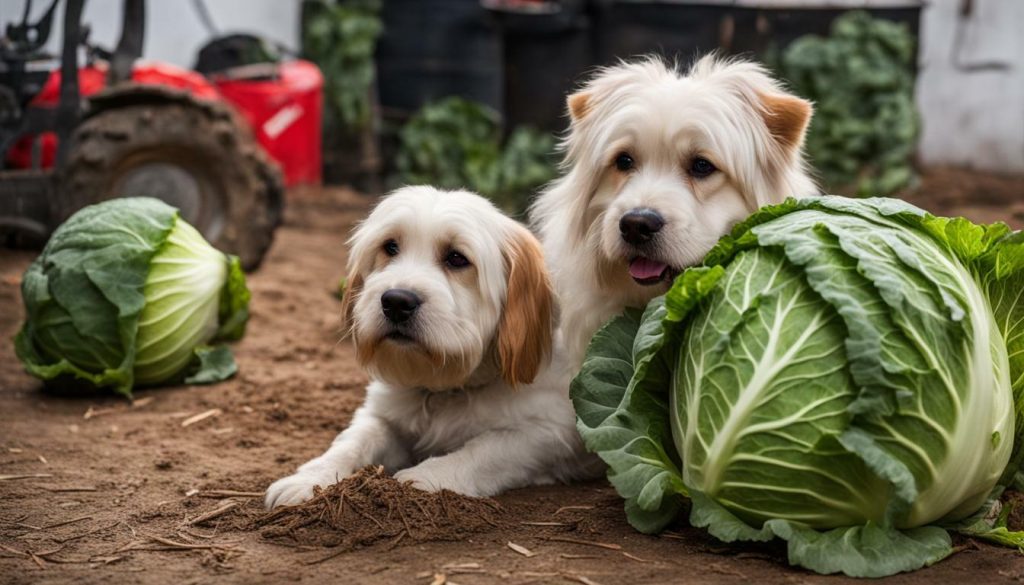
| Risks | Precautions |
|---|---|
| Gas and bloating | Feed cabbage in moderation and avoid feeding it to dogs prone to bloat. |
| Gastrointestinal discomfort | Watch for any signs of digestive upset and adjust portion sizes accordingly. |
| Thyroid function | Avoid feeding large amounts of cabbage to dogs with thyroid conditions. |
| Choking hazards | Cut cabbage into small, manageable pieces to prevent choking. |
By following these precautions and incorporating cabbage into your dog’s diet in moderation, you can safely enjoy the nutritional benefits it offers. Remember, consult with your veterinarian if you have any concerns or questions regarding your dog’s specific dietary needs.
Best Practices for Feeding Cabbage to Dogs
When feeding cabbage to your furry friend, it’s essential to follow these best practices to ensure their health and well-being. Cabbage can be a nutritious addition to your dog’s diet, but it should be given in moderation and prepared properly.
First and foremost, it’s important to cook the cabbage before feeding it to your dog. Raw cabbage can be difficult for dogs to digest and may cause stomach upset. By cooking the cabbage, you make it easier for your dog’s digestive system to process.
Additionally, it’s crucial to avoid seasoning the cabbage with butter or spices. While these additions may enhance the flavor for humans, they can be harmful to dogs. Stick to plain, cooked cabbage without any additional ingredients.
When serving cabbage to your dog, take their size and tolerance into consideration. Start with small portions and monitor their reaction. Some dogs may have a higher tolerance for cabbage, while others may experience gastrointestinal discomfort if given too much. It’s always best to introduce new foods gradually and observe any changes in your dog’s digestion.
| Dog’s Weight | Cabbage Portion |
|---|---|
| Small (up to 20 lbs) | 1-2 tablespoons |
| Medium (20-50 lbs) | 2-4 tablespoons |
| Large (50+ lbs) | 4-6 tablespoons |
Lastly, it’s crucial to remember that cabbage should not replace a balanced diet for your dog. While it can provide certain health benefits, it’s important to incorporate a variety of other foods to ensure they receive all the necessary nutrients. Consult with your veterinarian to determine the best diet plan for your dog’s specific needs.
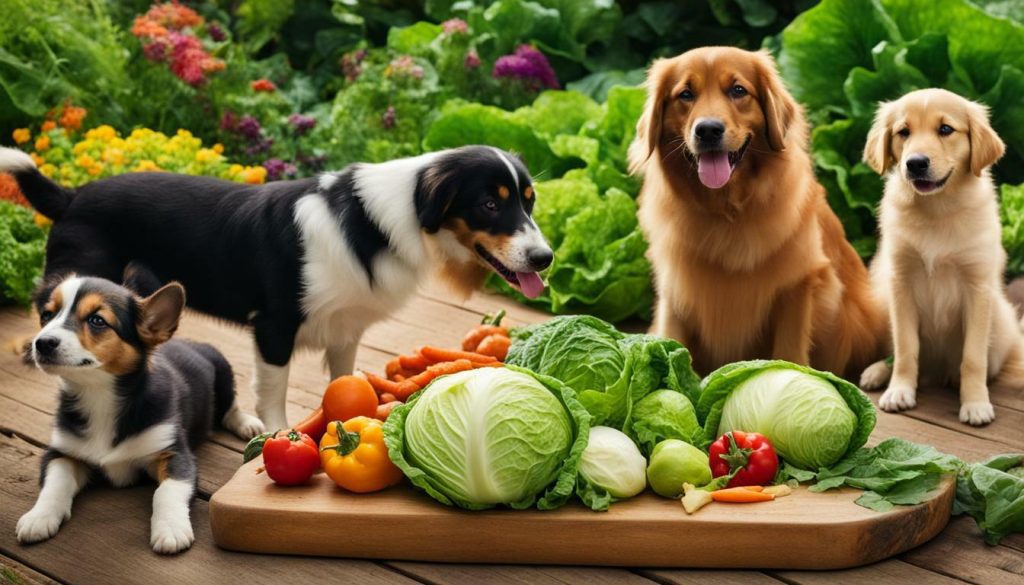
Conclusion
In conclusion, cabbage can be a healthy addition to your dog’s diet when fed in moderation and prepared correctly. It offers several health benefits and can support digestion, eye health, and the immune system. However, it’s important to be mindful of portion sizes and closely observe your dog’s tolerance. By following these best practices, you can safely incorporate cabbage into your dog’s meals and provide them with a well-rounded diet.
Conclusion
In conclusion, cabbage can be a safe and beneficial addition to your dog’s diet when fed in moderation and prepared properly. It is important to note that cabbage is low in calories and high in fiber, making it a nutritious choice for dogs. Additionally, cabbage is packed with vitamins C and K, magnesium, and beta-carotene, which can support your dog’s overall health.
When incorporating cabbage into your dog’s meals, it is essential to feed it in moderation. While cabbage can provide numerous health benefits, feeding large amounts can lead to gastrointestinal discomfort and may impact thyroid function. It is best to start with small portions and monitor your dog’s tolerance.
For the safety of your dog, it is crucial to cook cabbage before serving. Seasonings such as butter and spices should be avoided, as they can be harmful to dogs. Raw cabbage can be difficult for dogs to digest and may cause digestive issues. To prevent choking hazards, cut the cabbage into small, bite-sized pieces.
Cabbage can be added to your dog’s regular food or served as an occasional treat. However, it is essential to provide a balanced diet that includes a variety of nutrients. Cabbage should not be relied upon as the sole source of nutrition for your dog. Always consult with your veterinarian to determine the best dietary options for your furry friend.
FAQ
Can dogs eat cabbage?
Yes, dogs can eat cabbage in moderation.
What are the health benefits of cabbage for dogs?
Cabbage is low-calorie, high in fiber, and rich in vitamins C and K, magnesium, and beta-carotene. It can support digestion, promote eye health, boost the immune system, and provide antioxidants.
Are there any risks in feeding cabbage to dogs?
Feeding cabbage to dogs should be done in moderation as it can cause gas, especially in dogs prone to bloat. Large amounts of cabbage can cause gastrointestinal discomfort and may impact thyroid function.
Can dogs eat raw cabbage?
Raw cabbage can be difficult for dogs to digest. It is recommended to cook cabbage before feeding it to dogs.
How should cabbage be prepared and served to dogs?
Cabbage should be cooked and not seasoned with butter or spices. It should be cut into small pieces to avoid choking hazards. Cabbage can be added to a dog’s regular food or served as an occasional treat.
Is both red and green cabbage safe for dogs?
Yes, both red and green cabbage are safe for dogs to eat.
How much cabbage should I feed my dog?
Portion sizes should be based on the dog’s size and tolerance. It’s important to provide a balanced diet and not rely solely on cabbage or other vegetables.
Can dogs eat cabbage every day?
It is recommended to feed dogs cabbage in moderation and not provide it every day. A balanced diet is crucial for their overall health.


